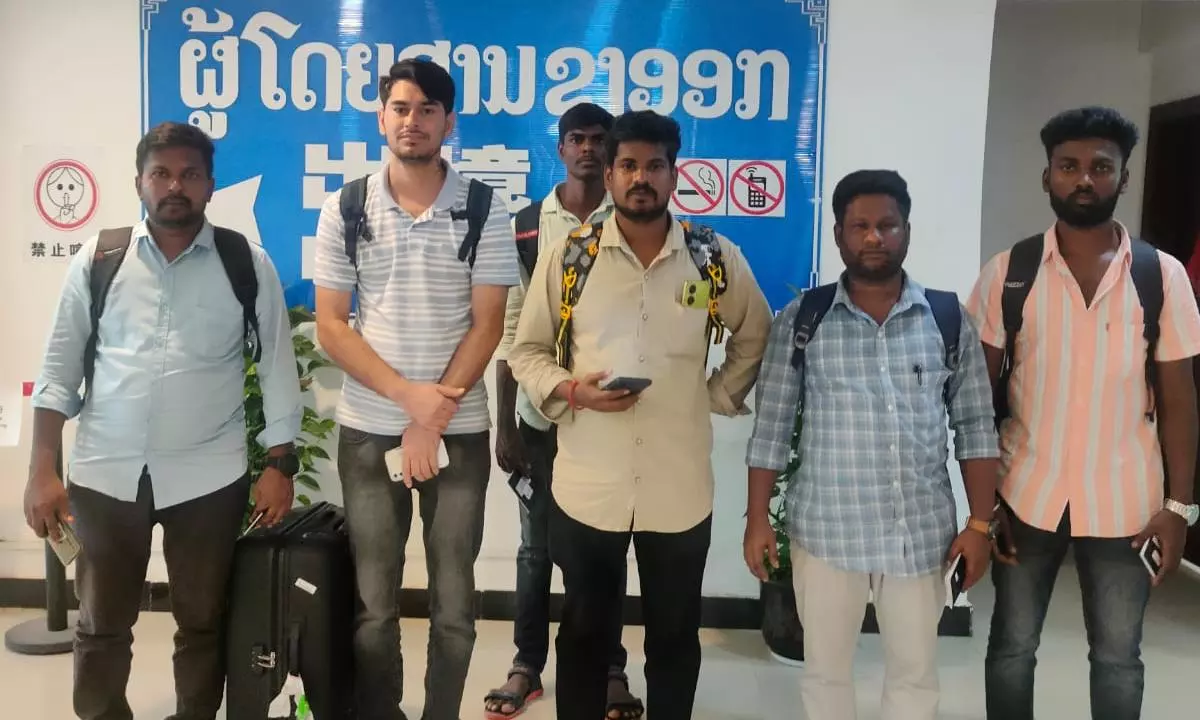
Indians rescued from Cambodia, Laos cybercrime rackets; embassies issue statements
Indian nationals, lured by fake promises of lucrative job opportunities, are falling into the trap of human traffickers, say embassies

At least 14 Indian citizens trapped in a cybercrime scam in Cambodia and 13 in Laos have been rescued, the respective Indian embassies in the two countries have said in a statement and informed that they are working for their expeditious return home.
The Indian Embassy in Cambodia, in collaboration with the authorities, got the 14 Indian citizens released and they are being looked after by the Cambodian side, the embassy said in a post on X.
In an official press release, the embassy in Cambodia’s capital said it has facilitated the rescue and repatriation of over 650 Indian citizens who had fallen victim to fraudulent job offers that lured them into cybercrime operations.
Embassy provided inputs
The statement said the embassy provided specific leads to the Cambodian police, leading to the rescues. The rescued individuals are currently being cared for by an NGO working in collaboration with Cambodia’s Ministry of Social Affairs, Veterans and Youth Rehabilitation.
“The Embassy continues to closely monitor the situation and remains committed to protecting the welfare of Indian citizens in Cambodia. Indian nationals are advised to exercise extreme caution regarding any job offers in the country and to report any suspicious activities to the Embassy,” the release said.
Advisory
In April, the Indian Embassy in Cambodia issued an advisory against fake job scams.
“It has come to attention that Indian nationals, lured by fake promises of lucrative job opportunities in Cambodia, are falling into the trap of human traffickers. These Indian nationals are coerced to undertake online financial scams and other illegal activities,” it said.
The embassy advised Indian nationals intending to visit Cambodia for employment to do so only through authorised agents. It also advised the jobseekers to thoroughly check the background of the prospective employer.
13 rescued in Laos
In Laos, 13 Indians, who were similarly lured into cyber-scamming centres, have also been rescued and sent back home, the Indian embassy in the Southeast Asian country said on Sunday.
"In our continued work to ensure safety & well-being of Indians as top priority, Embassy successfully rescues 13 Indians from cyberscamming centres in Laos & ensures their safe return to India," the mission posted on 'X'.
Indians escape Laos
"So far, Embassy has rescued 518 Indians. We thank Lao authorities for their cooperation," it said.
On May 7, the embassy came out with an advisory cautioning Indians against fake job offers.
"Instances have come to our notice recently wherein Indian nationals are being lured for employment through Thailand," it had said.
"These fake jobs are for posts such as of 'Digital Sales and Marketing Executives' or 'Customer Support Service' by dubious companies involved in call-centre scams and crypto-currency fraud in Golden Triangle Special Economic Zone in Laos," the embassy said in the advisory.
It said agents in places such as Dubai, Bangkok, Singapore and India associated with these firms are recruiting Indians by taking simple interviews and tests.
'Harsh conditions'
"Victims are illegally taken across the border into Laos from Thailand and held captive to work in Golden Triangle Special Economic Zone in Laos under harsh and restrictive conditions," it said.
"At times, they are taken hostages by criminal syndicates indulging in illegal activities and forced to work in strenuous conditions under constant physical and mental torture," the advisory said.
The embassy had said there were instances of Indian workers being brought to Laos to work in other regions of Laos in low-cost jobs such as mining, wood factory, etc.
(With agency inputs)

